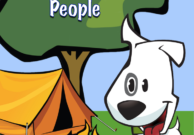Camping is a fantastic way to spend time with our pets! Sunny days spent exploring nature … and quiet, starry nights by the campfire. And if we follow proper camping etiquette with our pets, we’re good camping neighbors and also helping to ensure the camping facilities we visit stay pet friendly.
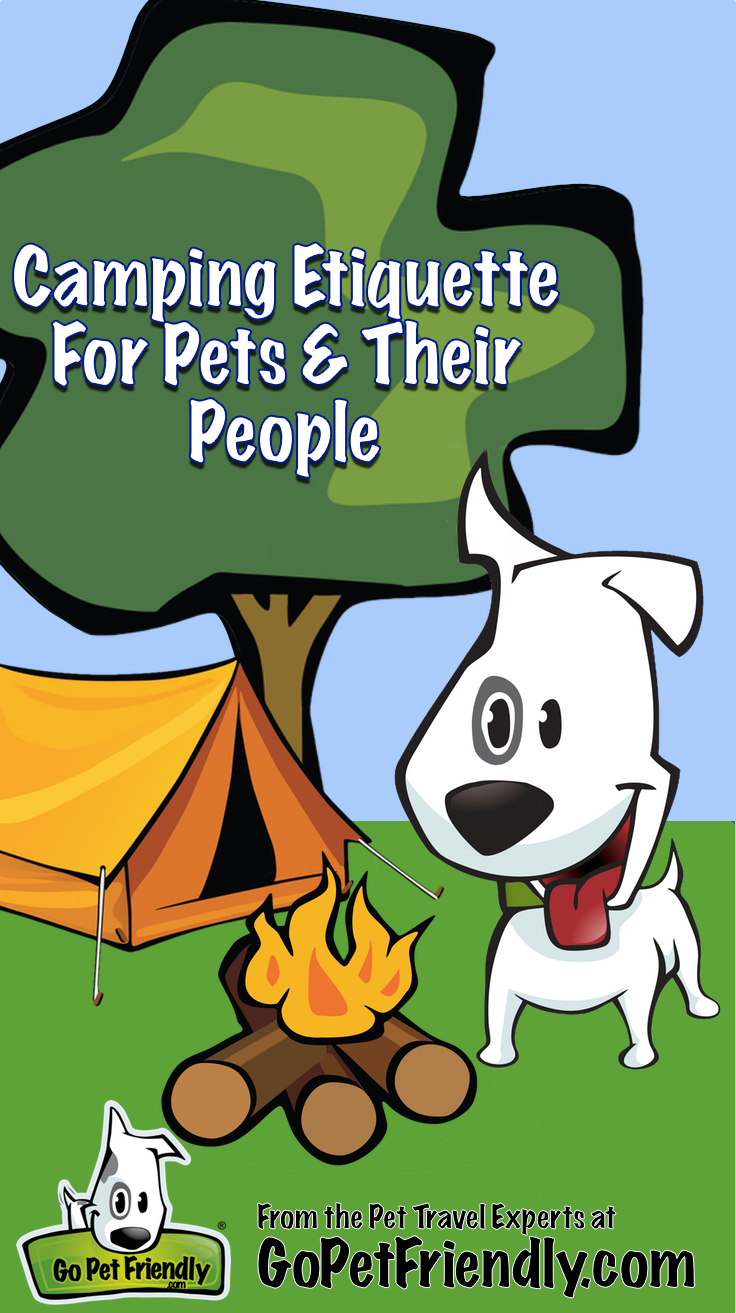
Camping is in our DNA. Who doesn’t love sharing the marshmallows while savoring moments of togetherness! But we also have a responsibility to follow proper camping etiquette with our pets.
Irresponsible behavior by a few pet owners can cause campground owners to prohibit pets entirely. So we must be considerate guests, to ensure we’re all able to go camping with our best friends in the future!
Pet Friendly Camping Etiquette
We all want to be considerate campers — especially when traveling with our pets. But unless you camp a lot, figuring out which behaviors to avoid can be tricky. Traveling full-time in our motorhome for 12 years taught us a lot. Here are our tips for your next camping trip:
1. Follow the Rules – This should go without saying, but make to read and then follow the rules. Campground restrictions vary widely, covering everything from acceptable leash length, to areas where pets can’t go. At some campgrounds, pets can’t be left unattended — even inside your camper or motorhome. We even had one campground tell us that pets were not allowed to walk on the park’s roads and trails! So it’s important to ask for the campground’s pet policy before making your reservation.
2. Leash Up – Pet leashes are required in nearly every campground, for everyone’s safety and happiness. Even if your dog is perfectly behaved off-leash, a campground is not a place to show off his skills. Some people and pets in campgrounds might be afraid of dogs, and subjecting them to the sight of a dog without a visible restraint is inconsiderate and unfair.
READ MORE ⇒ Beginners Guide to Camping with Dogs
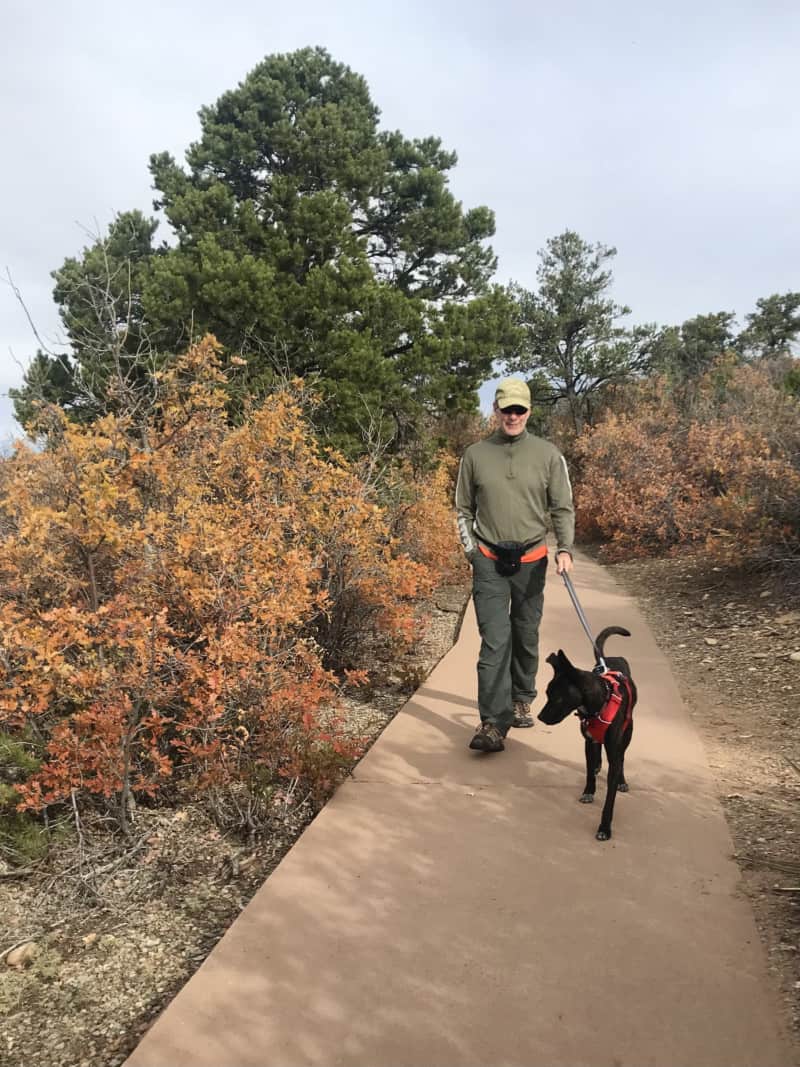
3. Always, Always, ALWAYS Pick Up – Abandoned dog waste is a major consideration when parks, beaches, and campgrounds decide whether to be pet friendly. You might think that your dog’s droppings don’t have an impact, but multiply that waste by hundreds or thousands of dogs over time, and it’s easy to imagine things piling up!
You can even go out of your way to make things better. When picking up after your dog, if you happen to see abandoned waste, pick that up, too. You’ll be helping to preserve the reputation of all dog owners.
4. Mind the Noise – Camping is a wonderful opportunity to immerse yourself in the tranquility of nature. And nothing will disturb a peaceful experience faster than the ear-splitting, prolonged grievances of a dog. So do your best to keep your pets quiet. Having treats handy will help distract your dog from squirrels, other dogs, or anything that might incite a barking jag.
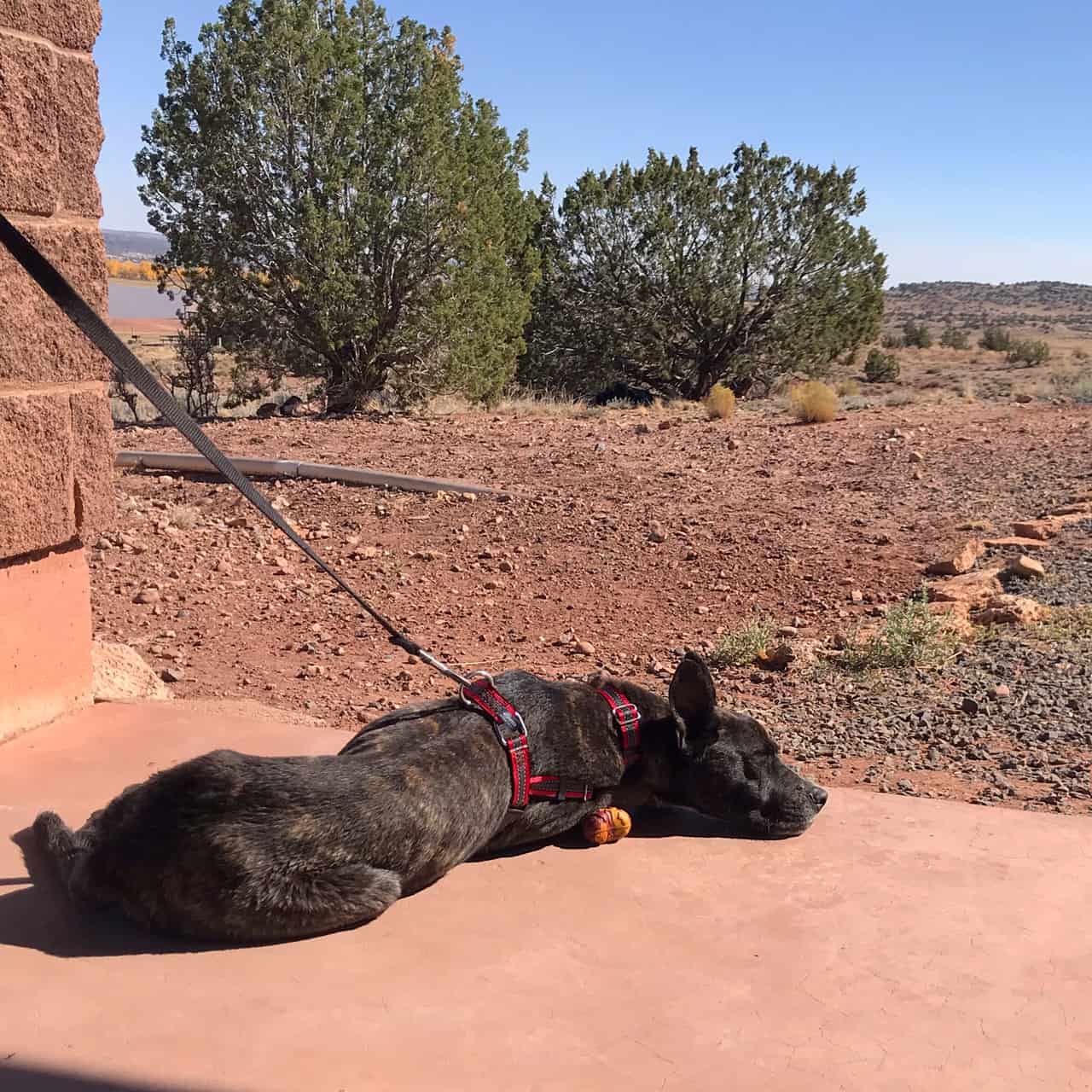
Leaving Your Dog Alone
Dogs causing a disturbance while alone in the campground is one of the biggest complaints people have about pets. So, as much as possible, take your pets with you when you leave the campground. Finding pet friendly activities you can do together is easy on the GoPetFriendly website.
If you do need to leave your pet alone for a bit, make sure he’s comfortable before you go. Here’s a quick way to gauge your dog’s reaction before leaving him:
- Start by providing your pup with a puzzle or food-stuffed toy to keep him busy.
- Turn on some calming music and pull all the shades in your camper or RV.
- Go out like you’re leaving and move your car to other side of the campground. Then sneak back to your campsite and wait 5 or 10 minutes to see what happens.
If your dog barks, there some work to do before you leave him alone. Training your dog to remain calm while increasing the intervals that you’re away takes a lot of patience. But in the end, you’ll both be happy campers.
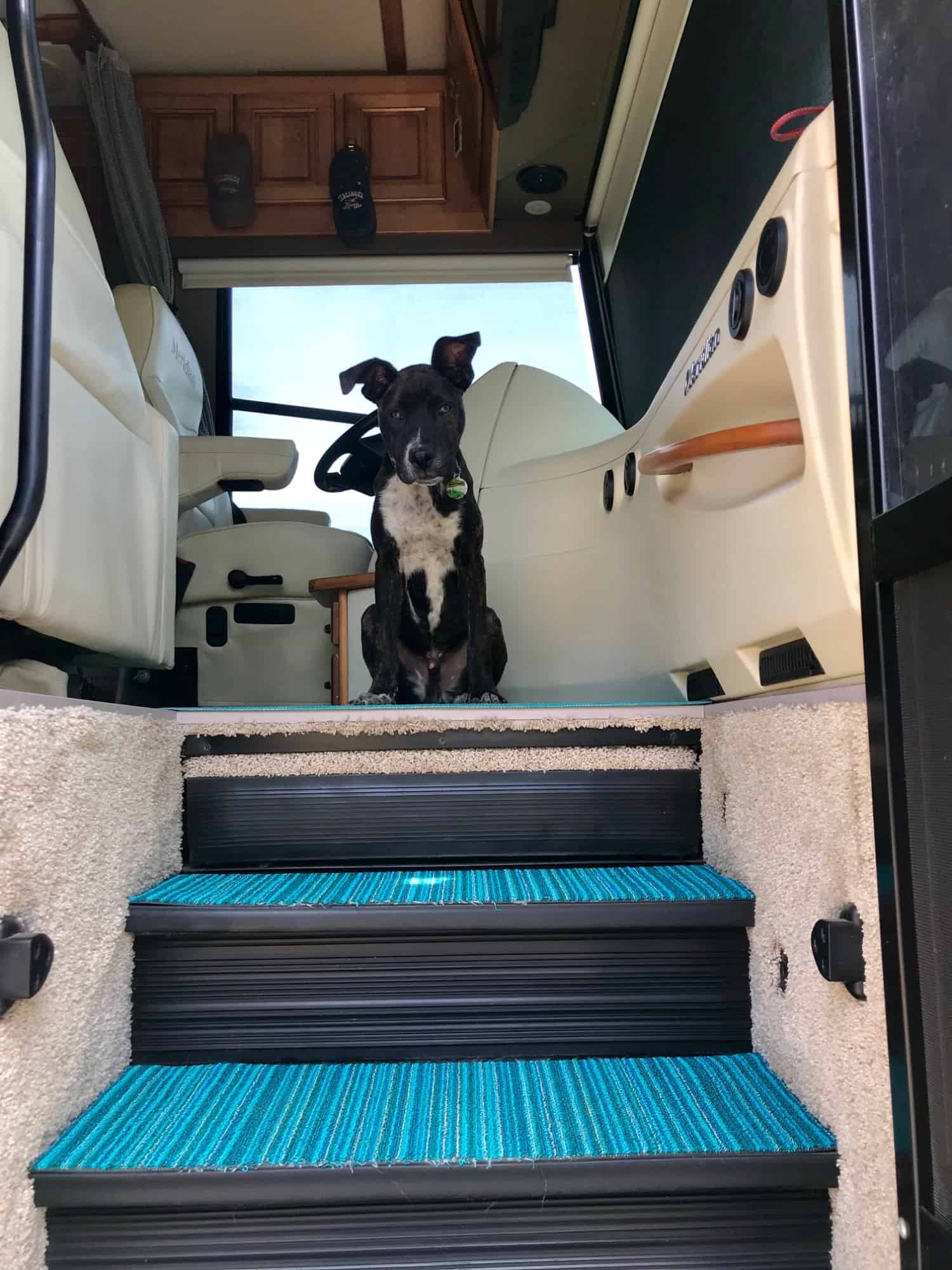
Think Twice About Tethering
Many campgrounds do not allow you to leave your dog tied outside – and for good reason! Pets left tethered can become prey for wild predators in the area. Sometimes stray children wander in and surprise them. And tangling in the tether and injuring themself is another concern. So anytime you tether your pet, stay outside with him.
Good camping etiquette with pets also means securing your dog far enough from walking paths so he can’t approach people and other pets passing by.
Finally, making a doggy zip line is a better solution than a tether for keeping your pooch safe and happy.
READ MORE ⇒ Make Camping Fun With A Zip Line For Your Dog
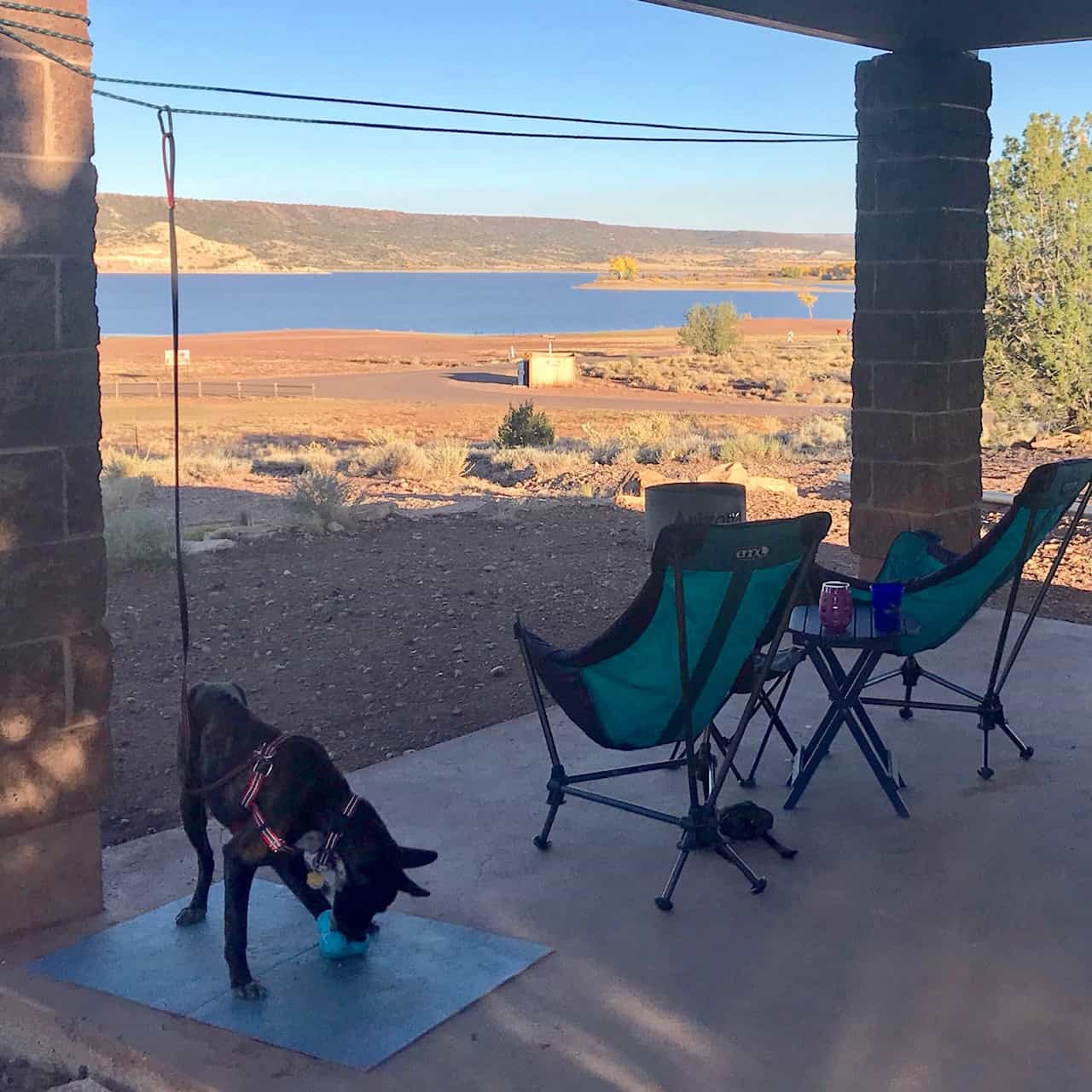
Allow Others Their Space
Camping is an opportunity to relax and get away from it all. That might mean that some people and their pets would prefer not to interact. Always ask before approaching another dog. And be understanding if your social advances aren’t reciprocated.
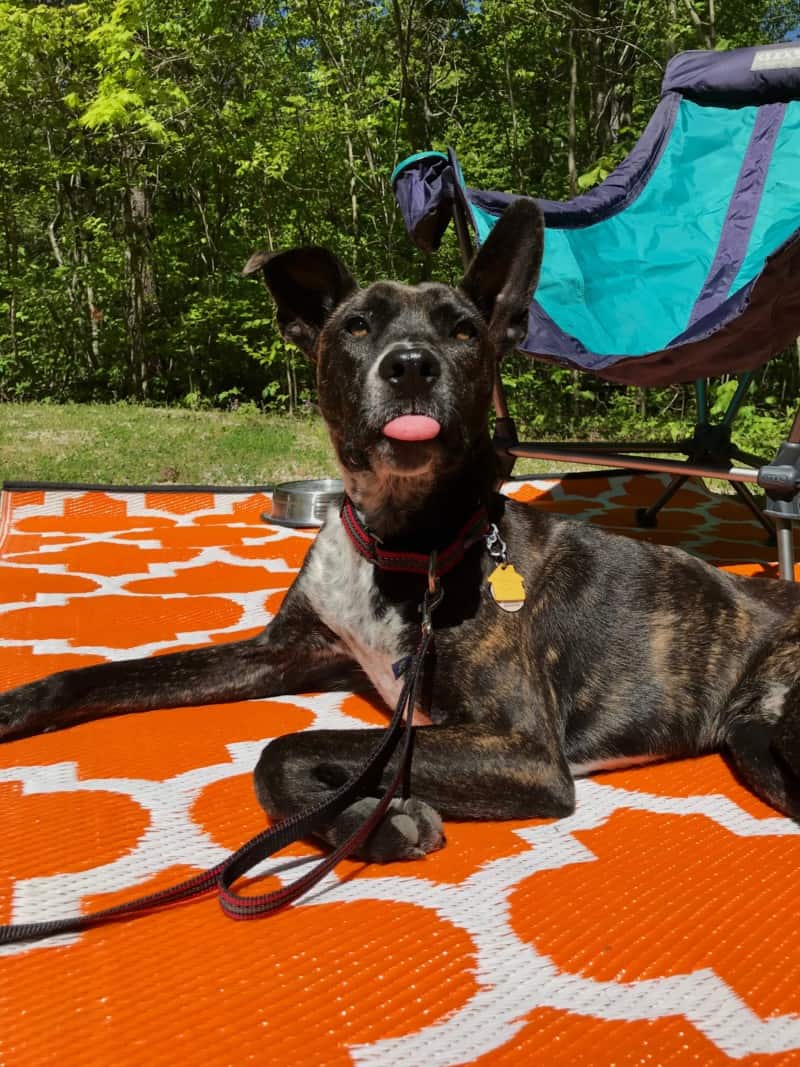
Train All The Time
Every new environment or experience provides a wonderful opportunity to expand your dog’s training. And old dogs definitely can learn new tricks!
Camping provides countless chances to practice commands like come, sit, and leave it. And the time you spend training your dog builds his confidence and strengthens your relationship.
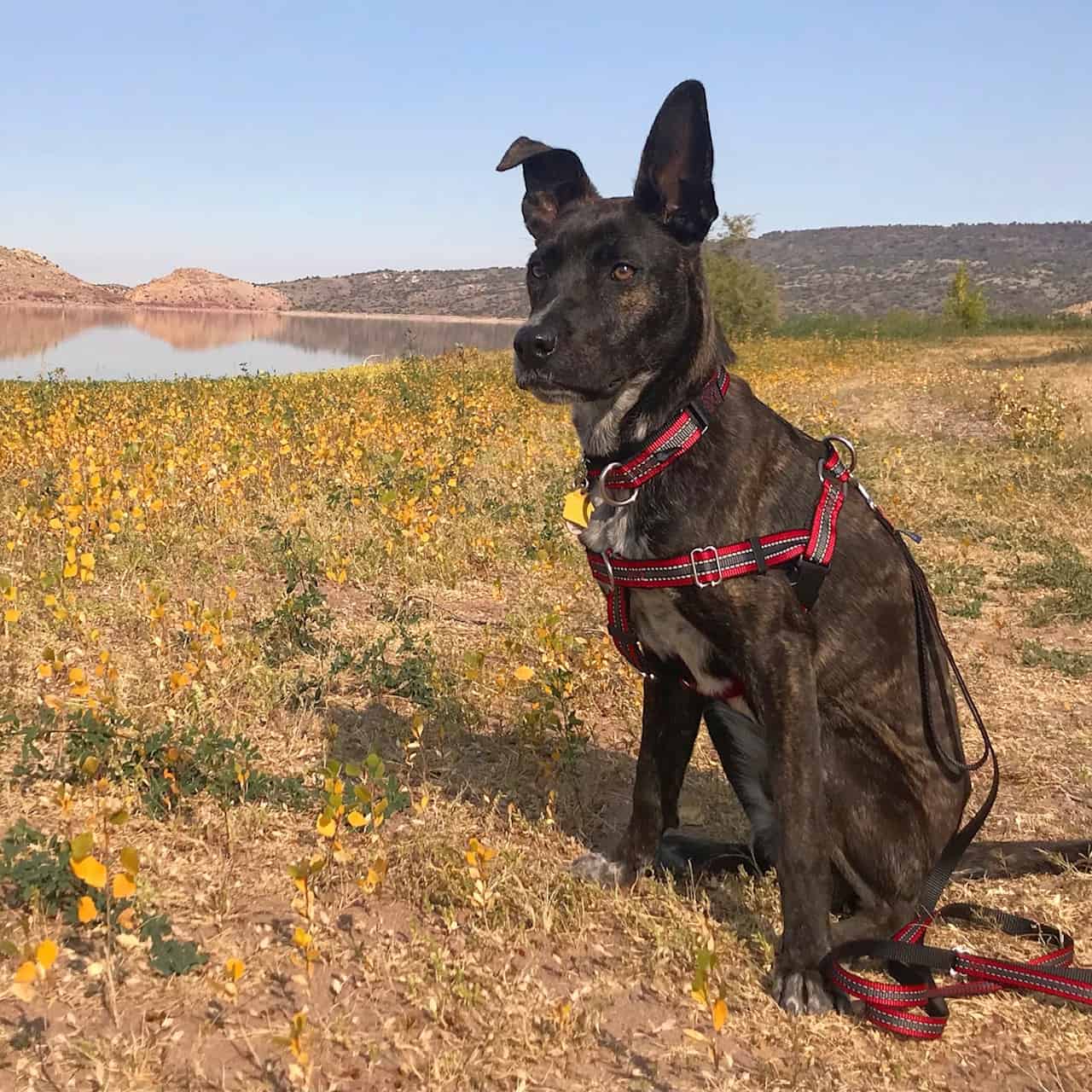
Don’t Spread Bugs
Some campgrounds will ask for your pet’s vaccination records. But even if they don’t, make sure your pal is healthy and up-to-date on his shots before taking him to an area with a high concentration of pets.
Before your camping trip, research the area you’ll be visiting and discuss any health concerns with your vet. Specifically, ask whether you need to consider flea or tick preventative. Also talk to your vet about contagious diseases that might be present, like canine influenza.

Watch Where You Walk
Some campgrounds provide a designated “pet walk” area for dogs to relieve themselves. It’s not always possible to get your pet there (especially first thing in the morning) unless you carry or drive them, but do your best.
Whether there’s a specific pet walk area or not, never allow your dog to explore someone else’s campsite, or relieve himself on their tires, chairs, or other belongings. Retractible leashes seem to be most problematic in this situation, so pay especially close attention to your dog’s whereabouts if that’s the type of leash you use.
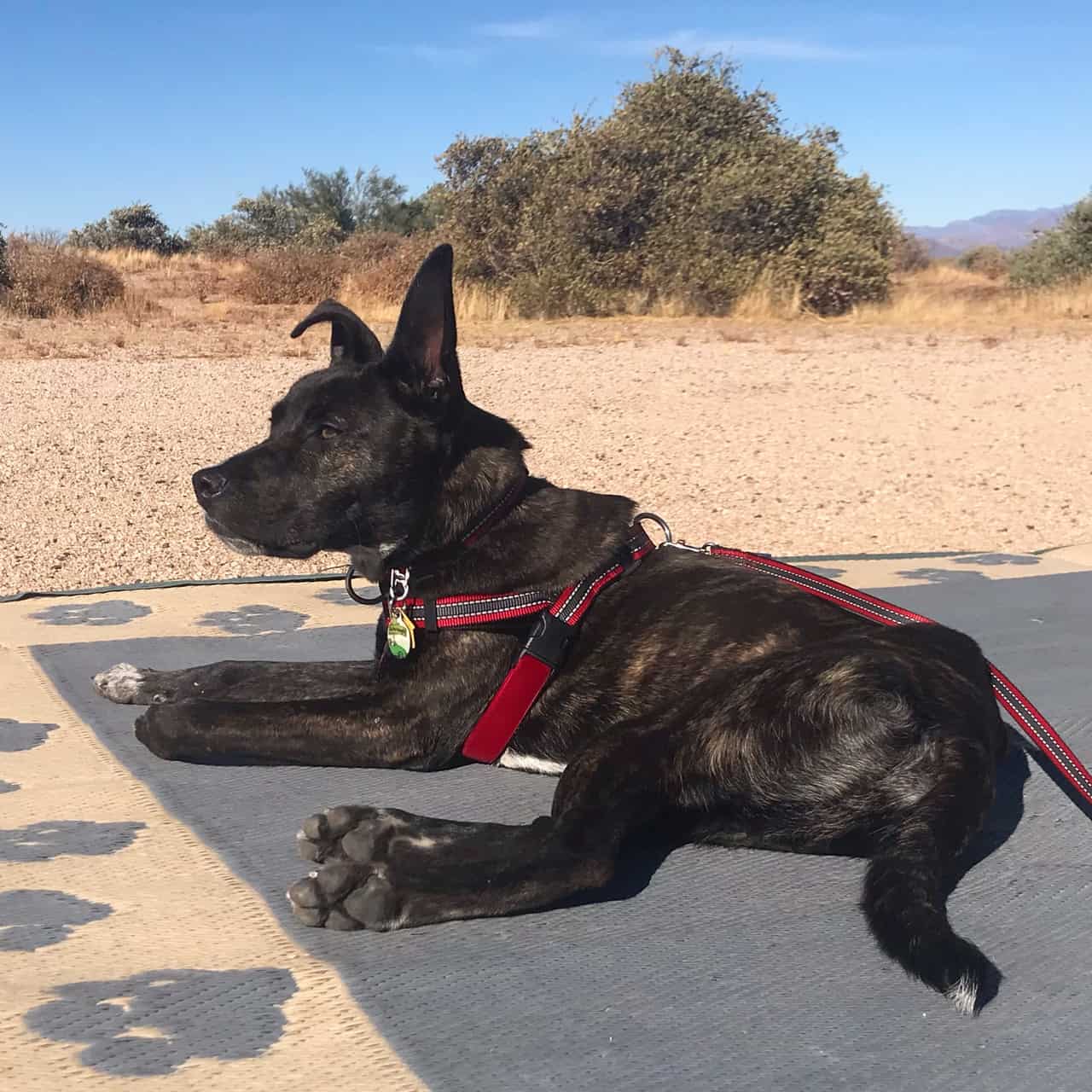
Know When To Leave
Dogs can have bad days. Or your pup may just not be ready for his first big camping trip. But you can’t know unless you try! So start out by planning short stays. And be ready to leave if things aren’t working out.
Remember, this is meant to be fun. So if you and your dog aren’t enjoying it, don’t suffer through. Just try again another day.

Following camping etiquette with your pets takes a bit of effort. But you’ll leave behind a great impression of all pet travelers as considerate, responsible guests. Thank you for doing your part to ensure that we all have opportunities to camp with our pets in the future!
(Visited 5,919 times, 1 visits today)
Credit : Source Post
